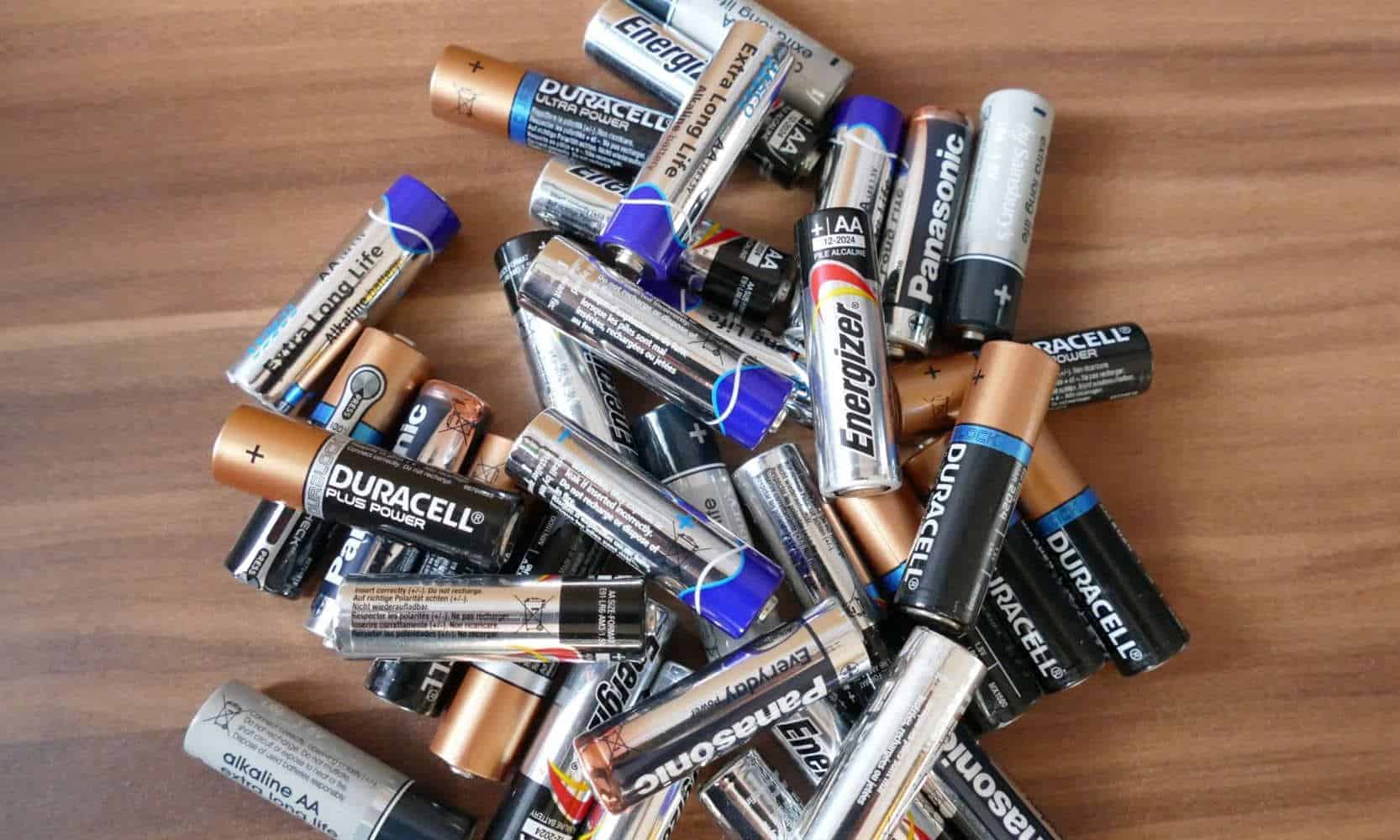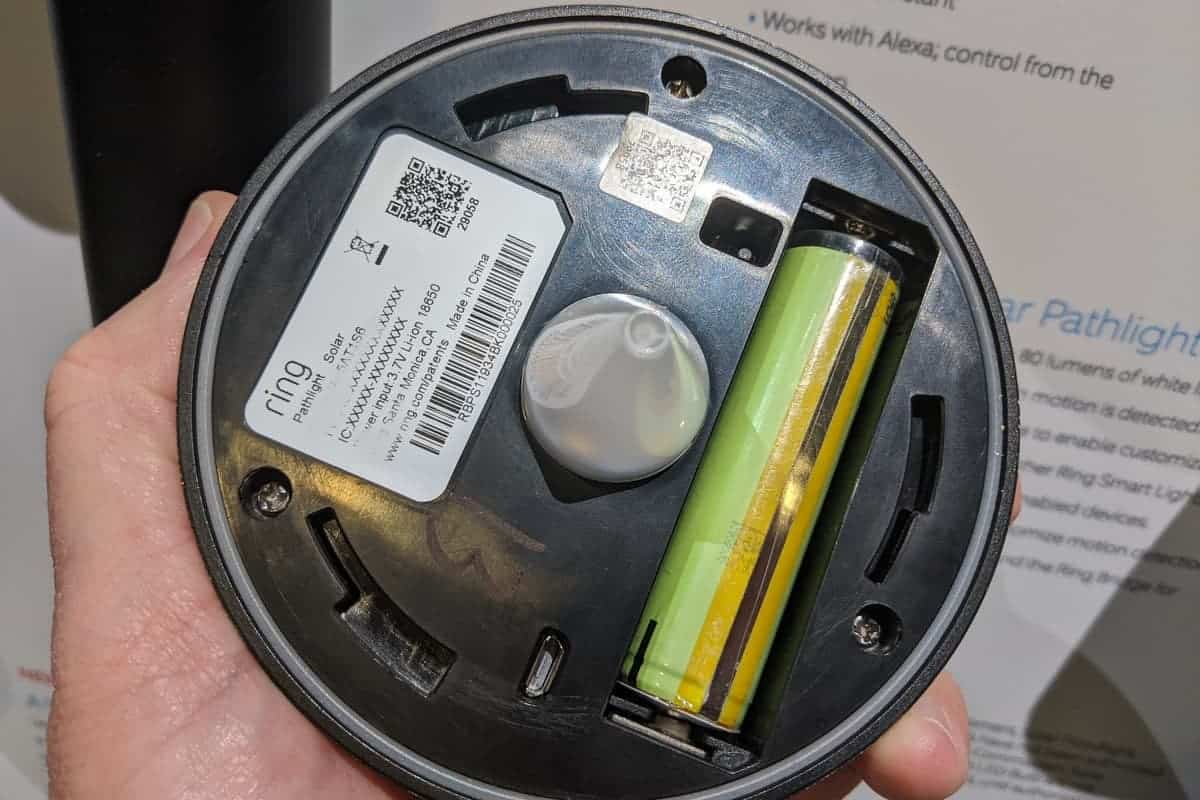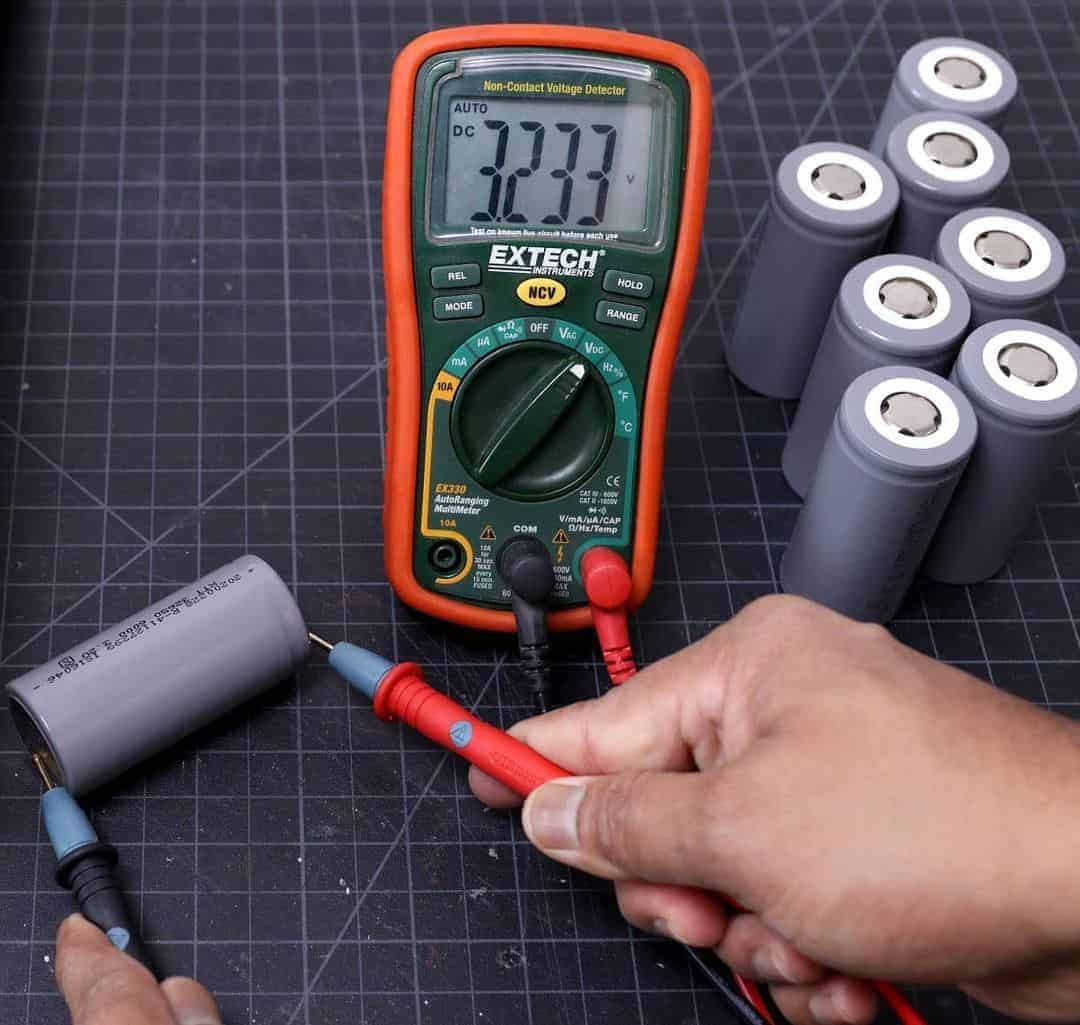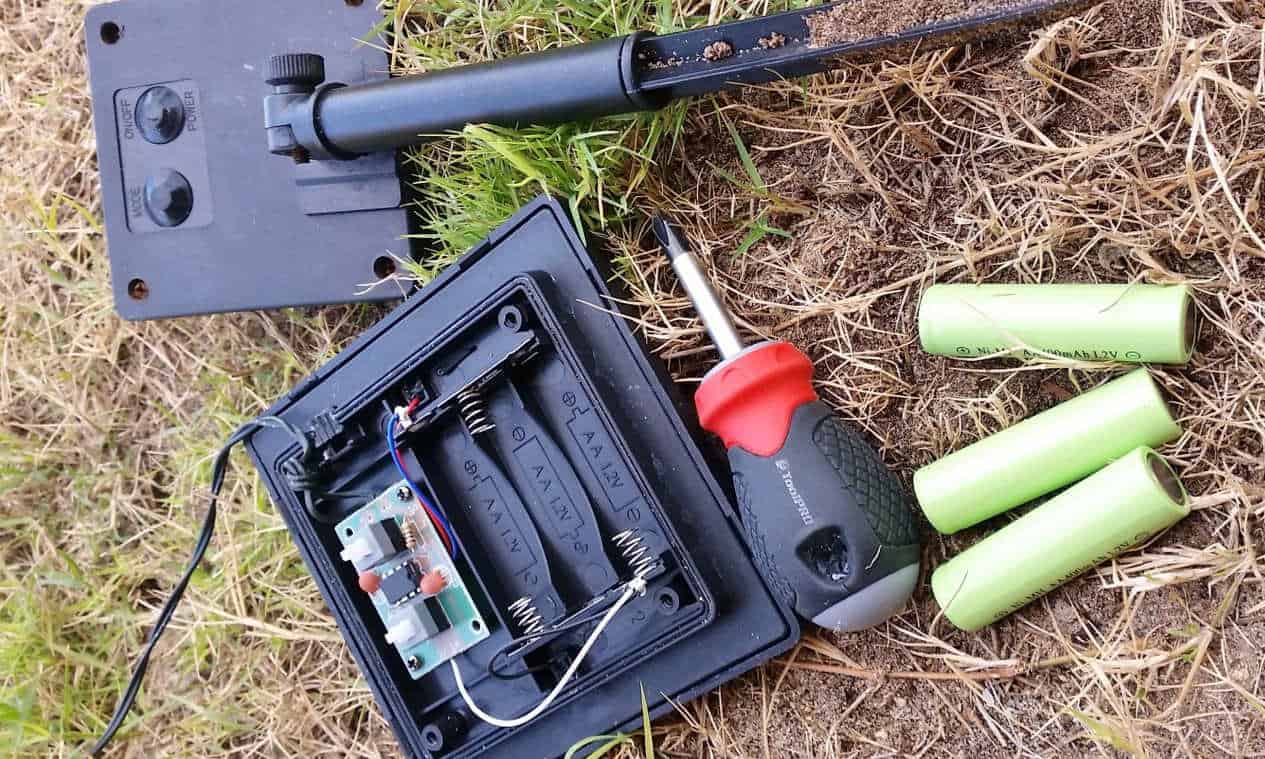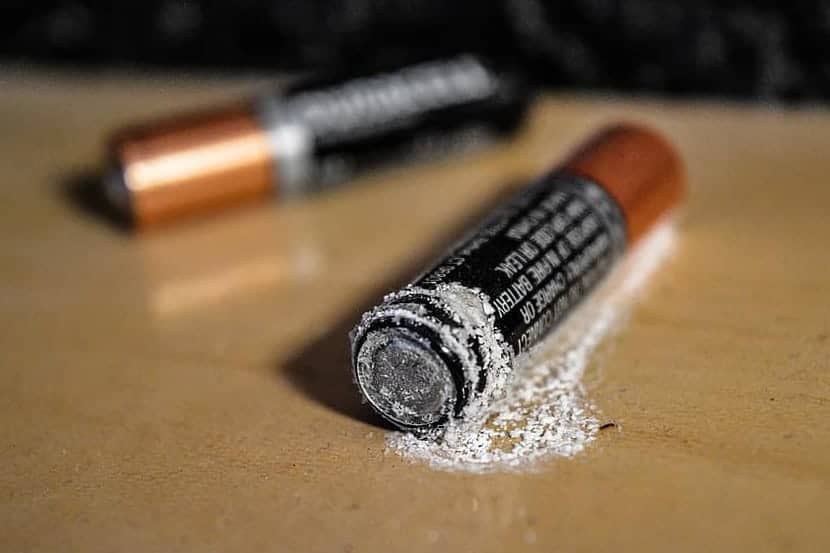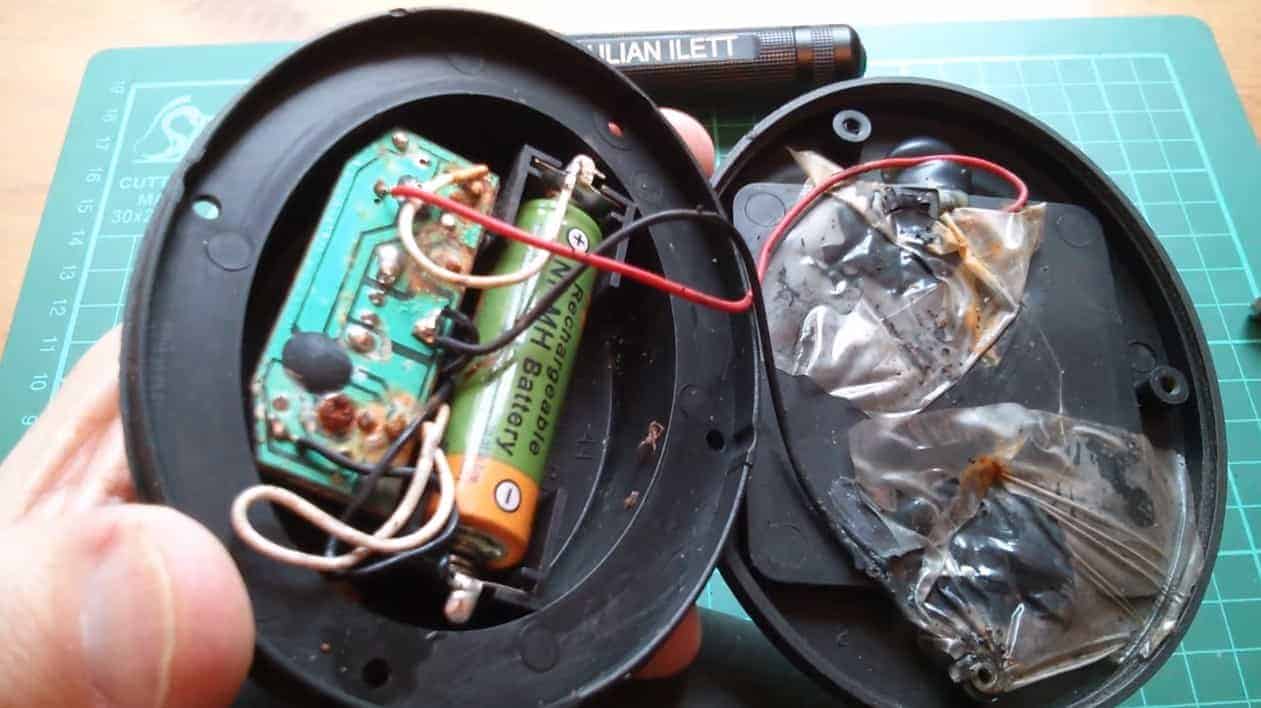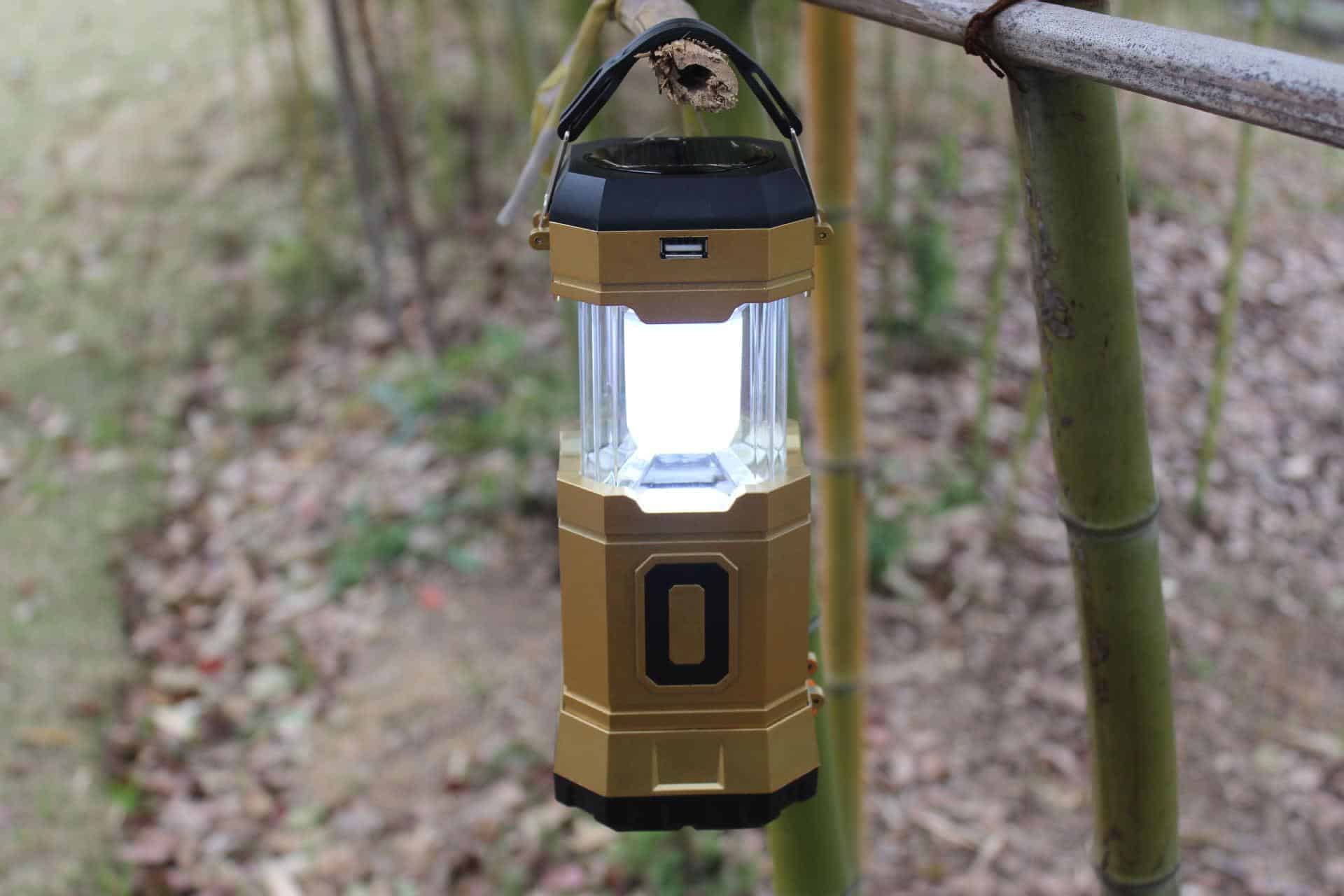There are many reasons why solar lights may stop working. But in most cases, it turns out the main culprit is worn-out batteries.
As much as solar light batteries are sustainable and economical, they will eventually lose their capacity to hold a charge. When that happens, the solar lights won’t perform as well as they should.
For optimum lighting, solar light batteries need to be replaced at least once a year. Now, this begs the question: Are regular batteries okay for solar lights?
The short answer is NO. Regular batteries, particularly alkaline-based batteries, aren’t okay for solar lights because they’re designed to be disposed of once they run out of juice.
The long answer is YES. For short periods, regular batteries may be used to power up solar lights. As a general principle, you should not leave regular batteries inside your solar lights for a period exceeding one week.
Are Solar Light Batteries Different from Alkaline Batteries?
Solar light batteries store power from the sun. The photovoltaic arrays in the panels collect the sun’s rays and convert them into DC. The current is then stored in the rechargeable batteries to power up the lamps at dusk.
On the other hand, alkaline batteries derive energy from the zinc metal and manganese dioxide reaction. They aren’t designed for recharging, and you should avoid using them in your solar lights.
Of course, it’s okay to use regular batteries for a couple of days as you make arrangements to get new rechargeable batteries. However, know that it’s not worth the risk considering they can cause a permanent system failure.
Which Types of Batteries Do Solar Lights Need?
Solar lights don’t need any special batteries to operate. They use one of two forms of batteries: NiCd (Nickel Cadmium) rechargeable battery or NiMH (Nickel Metal Hydride) rechargeable battery.
Both batteries are sold in many local stores near you, so it shouldn’t be a hassle to find your new replacement solar light battery. Both of these batteries are also interchangeable, meaning that you can install them whichever you wish.
When it comes to replacing your solar light batteries, I recommend you opt for NiMH batteries. Let’s see why the newer NiMH batteries are preferred over their old-style NiCd counterparts.
NiCd Batteries vs. NiMH Batteries: What Are Sets Them Apart?
Capacity: The NiMH batteries have a clear advantage over NiCd batteries in terms of capacity. These batteries can store twice as much solar energy as standard NiCd batteries. This means that they offer better illumination and longer output times.
Environmental Impact: NiMH batteries are environmentally friendly as they contain no harmful elements. For that reason, they can be disposed of without polluting the environment. NiCd batteries contain a hazardous element known as cadmium. Consequently, they must be disposed of properly.
Memory effect: NiCd rechargeable batteries suffer from something called the memory effect. If the batteries are charged before they’re completely flat, the next charge will be lower than the one before.
If you continually charge them before they’re fully drained, it will reach a point where they’ll no longer hold any charge. This is what is called the memory effect. NiMH batteries do not have a memory effect.
What’s the Average Lifespan of Rechargeable Batteries?
On average, the standard rechargeable solar light battery will last around 1-2 years. However, the actual lifespan can be more or less depending on your battery brand, type, and quality.
Most solar light batteries will decrease in brightness after one year. When rechargeable solar light batteries are not performing well, whether due to age or insufficient charging, the quality of light they produce will considerably diminish.
Their charging ability and overall performance will also decline dramatically. It would be best to replace the rechargeable batteries once they show their telltale signs of death.
How Do You Know Your Rechargeable Batteries Are Dead?
It’s easy to check if it’s time to replace your old rechargeable solar light batteries. All you need to do is temporarily remove the rechargeable batteries from your solar lights and replace them with regular alkaline batteries.
With regular alkaline batteries installed, go into a dark room and turn your solar lights on to test if the illumination is back to normal.
If it is, then it’s time you replace your rechargeable batteries with a new set. Be sure to uninstall the regular alkaline batteries from your solar lights to avoid any possible damage.
What Are the Consequences of Using Regular Batteries in Solar Lights?
There are multiple dangers of using regular non-rechargeable batteries in your solar lights, including:
Corrosion of Terminals
One of the dangers of using regular batteries in your solar lights is the corrosion of terminals. Regular batteries are designed to be discarded when they run out of juice.
If used in a solar lighting system, these batteries will rapidly drain the charge and corrode your light’s battery terminal. When that happens, it breaks the connection between the battery and its terminals, blocking power from reaching the light.
Irreversible System Failure
Regular alkaline batteries are not designed to be recharged, and using them in a solar light that attempts to charge the batteries could result in charging problems and permanent system damage. Besides, the corrosion of terminals can also lead to irreversible system failure.
Even though you can remove the severe corrosive effects of regular batteries with brushes and a solution of baking soda and water, this process is risky. No matter how careful you are, the excess water can still seep into the light’s internal mechanics, including the circuit board, wiring, LEDs, etc. This may render the system damaged beyond repair.
Warranty Cancelation
Virtually every solar light out there comes with a warranty. However, that warranty can only be valid if you adhere to the manufacturer’s terms and conditions. The manufacturer requires that you use only the recommended replacement solar light batteries.
If you use regular non-rechargeable batteries, you risk voiding your warranty. Consequently, the warranty won’t cover any damages caused by the wrong battery usage or any future damages to your system.
Unstable Performance
As I mentioned before, regular batteries aren’t designed for solar lighting systems. While you can use them for a short period, they won’t deliver as smooth performance as NiMH and NiCd batteries would.
Some of the common problems associated with regular batteries include flickering lights and sudden power drains. Simply put, you can’t rely on these batteries to provide optimum lighting performance.
When to Use Regular Non-Rechargeable Batteries?
While it’s not advisable to use regular batteries with solar lights, they might be your only practical option under some circumstances. Here are four critical situations when regular batteries can come into play.
When testing the solar lights
Alkaline batteries can be helpful when testing your solar light. If you notice that your lights aren’t as bright as they used to, and you’re unsure whether a dead battery is a problem, test the LEDs with new alkaline batteries.
When looking for recommended replacements
It would help if you stored extra NiMH or NiCd batteries for emergencies. But if your lights suddenly go off and you don’t have the recommended replacements, you can make do with regular batteries as you search for replacements.
Be sure to remove those batteries from your solar lights before seven days are over. If they stay longer, they may wreak the most havoc on your solar lighting system.
When fixing your solar lighting system
Much like any other electro-mechanical device, your solar lighting system will get worn out as time goes by. Old solar panels may not be able to charge the batteries effectively.
If your panels are no longer charging the batteries, you may utilize regular batteries before getting your solar lighting system fixed. However, make sure you install the recommended batteries once the necessary repairs are done.
When rechargeable batteries drain suddenly
It’s not uncommon for solar light batteries to go off all of a sudden. Factors like power surges and old age can cause the batteries to lose their capacity to charge.
If your rechargeable batteries are no longer holding a charge and you can’t get an immediate replacement, reach for your regular batteries. They should serve you for a day or two as you look for the proper models.
How Do You Extend the Lifespan of Rechargeable Batteries?
Once you’ve replaced your solar light batteries, you’ll want to make sure they stay in peak condition for longer. Here are the three vital tips to prolong the life of your NiCd or NiMH rechargeable batteries:
Tip# 1: Turn the lights off during extreme weather
You can extend the solar light battery’s lifetime by switching the lights off during long periods of rain or cloud. Switching off the lights when the rain doesn’t let up proves helpful in preventing damage to batteries.
Tip# 2: Store solar lights inside during extreme weather
It’s vital to store solar lights inside in cold winters to extend the lifespan of the battery. If possible, store them in places where they can capture either sunlight or house lighting so that the battery can sustain a charge.
Tip# 3: Keep solar panels squeaky clean
Regularly cleaning your solar panels ensures longer hours of illumination and better battery life. Therefore, wipe the panels with a clean, lint-free cloth at least twice a month to keep the solar lighting system working at its best.
Takeaway
Solar lights are typically designed to work with rechargeable batteries. However, when NiMH or NiCd rechargeable batteries are out of reach, you can temporarily use regular batteries to illuminate the LEDs.
As a rule of thumb, be sure to use regular batteries only for a short time, basically less than a week. Resorting to regular batteries all the time can corrode your solar light’s inner working mechanics and possibly cause a system failure.

